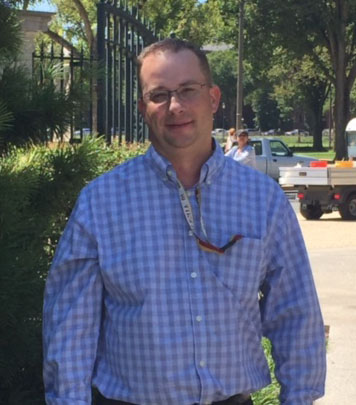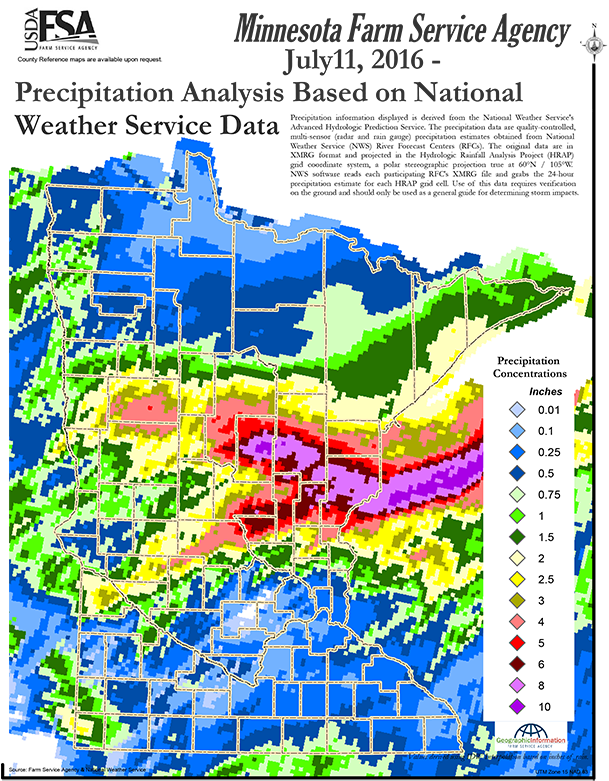 Back to WRN Ambassador Recognition Back to WRN Ambassador Recognition |
 |
 |
Information from the National Weather Service and the Weather Ready program is also complied monthly for FSA County offices. This helps support stronger understanding of seasonal weather variations that staff needs to be aware of. Part of these efforts have also led to participating with the USDA Regional Climate Hubs where Minnesota has a representative (Jeff Bloomquist) participating with other USDA agencies and climate groups to better study and develop ways for supporting agriculture through severe weather events and changes in climate over time.